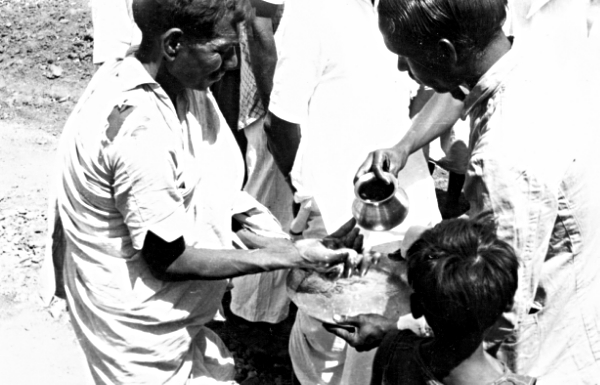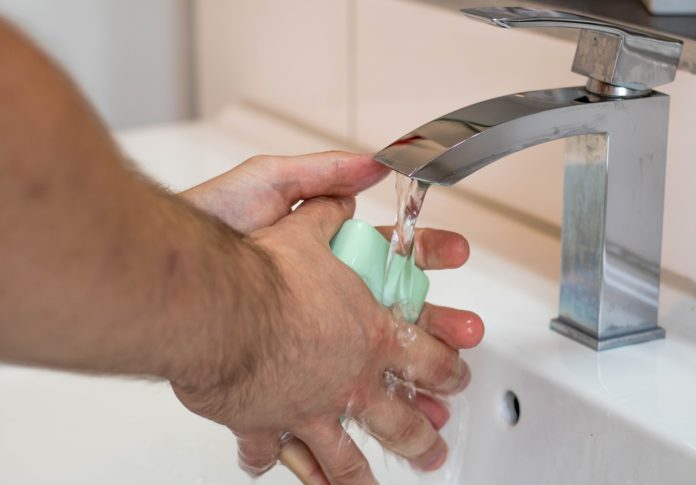Healthcare providers in rural areas often oblivious of the importance of hand hygiene
Much as the hand hygiene message may have become a vehicle in India for hand wash manufacturing companies to peddle their wares, the theme of this World Hand Hygiene Day has particular resonance in India.

The theme and why it’s important for India
The theme is “It’s in your hands – prevent sepsis in health care.” Sepsis is estimated to affect more than 30 million patients every year worldwide.
Sepsis occurs when chemicals released into the bloodstream in response to an infection trigger inflammatory responses throughout the body. This response can damage multiple organs in the body causing them to fail. If sepsis progresses to septic shock then blood pressure drops dramatically causing complete shutdown of vitals organs, leading to death.
The theme is important for India because a vast majority of India’s healthcare providers are in rural areas, many of them, not trained doctors or nurses but community health workers such as ASHAs and auxiliary nurse midwives (ANMs). Worse still many of them are informal providers – euphemism for quacks. It is among the latter two groups that the message needs to percolate.
Hand hygiene: what is it?
Every year, 5th May is celebrated as World Hand Hygiene Day to highlight the importance of hand hygiene in health care.
Hand Hygiene means cleaning of hands by using either handwashing i.e. washing hands with soap and water, washing hands with antiseptic, antiseptic hand rub with alcohol-based hand sanitizer or surgical hand antisepsis (as done by doctors before surgery). Practising hand hygiene is a very simple and effective way to prevent the spread of germs whether it is in a hospital setting or outside.
Hand washing is by no means something that only healthcare providers alone need to practise, though. It is a must before preparing or eating food, before touching eyes, nose, or mouth, after using the restroom as well as after blowing nose, coughing, or sneezing.
In hospital settings it is important to follow hand washing after touching hospital surfaces such as bed rails, bedside tables, doorknobs, remote controls, or the phone. It is important to rub both hands together covering all surfaces for 20 seconds when using alcohol-based hand sanitizer until both hands feel dry.
Why hand hygiene in hospital settings is sacrosanct
The slogan of this year’s campaign illustrates the important relationship between good infection prevention and control practices, such as washing hands, and preventing sepsis. The World Health Organization (WHO) calls on health facilities to prevent health care-associated sepsis through hand hygiene and action on infection prevention and control.
Health-care associated infection or HCAI is defined as an infection occurring in a patient during the process of care in a hospital or other health-care facility which was not present before admission. This includes infections acquired in the hospital and also occupational infections among staff of the facility. Hospital acquired infections are seen more in acute care settings like ICUs (Intensive care units) , senior citizens (age above 65 years), people with longer hospital stay, requirement of indwelling medical instruments or devices, children and pregnant women, and people with other chronic diseases.
According to WHO, infection in surgical site wound is the most frequent HCAI in low-and middle-income countries like India with an incidence of 11.8 per 100 patients undergoing surgical procedures. Incidence of ICU-acquired infection is at least 2–3 folds higher and device-associated infection densities up to 13 times higher than that in the higher income countries. Effective hand hygiene plays a key role in preventing sepsis and other HCAIs.
Clean hands means less infections, less sepsis, less use of antibiotics, shorter stay in hospitals, less sufferings for patients (including health workers ), better utilisation of resources and indirect benefit of less drug resistant bugs.



Thank you for every other great article. Where else could anyone get that kind of info in such an ideal method of writing? I’ve a presentation next week, and I’m on the search for such information.
Highly descriptive post, I enjoyed that a lot. Will there be a part 2?